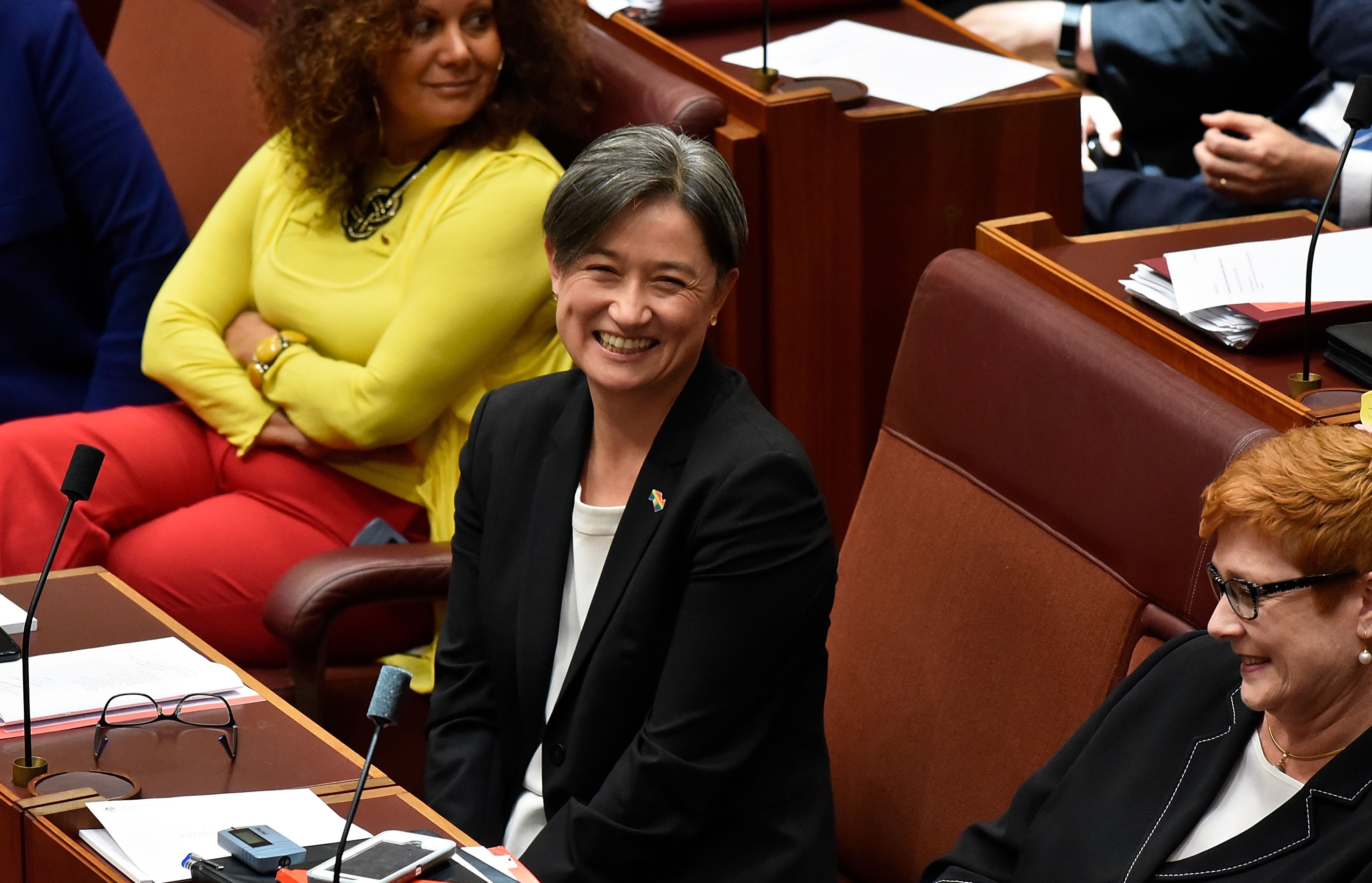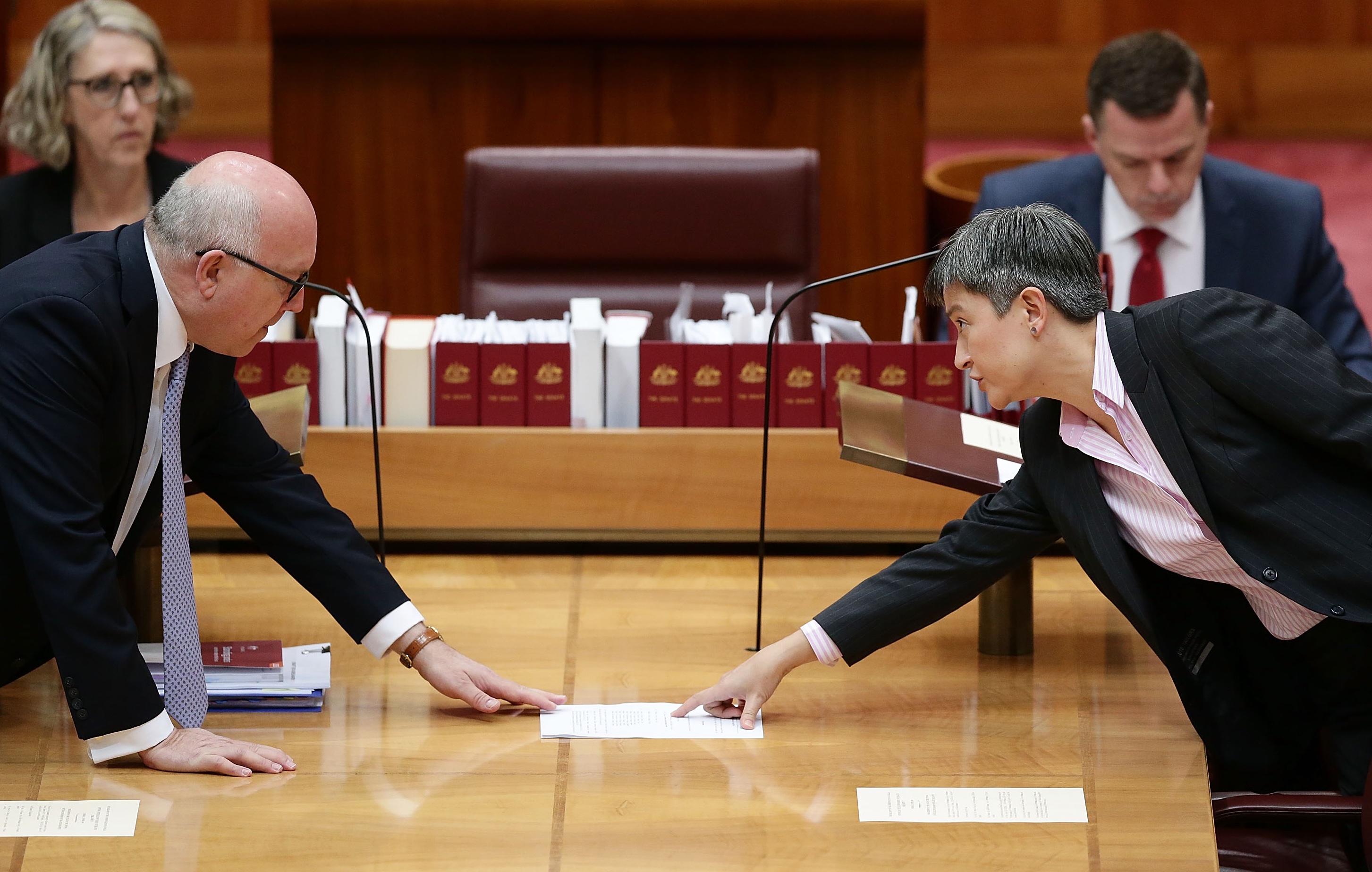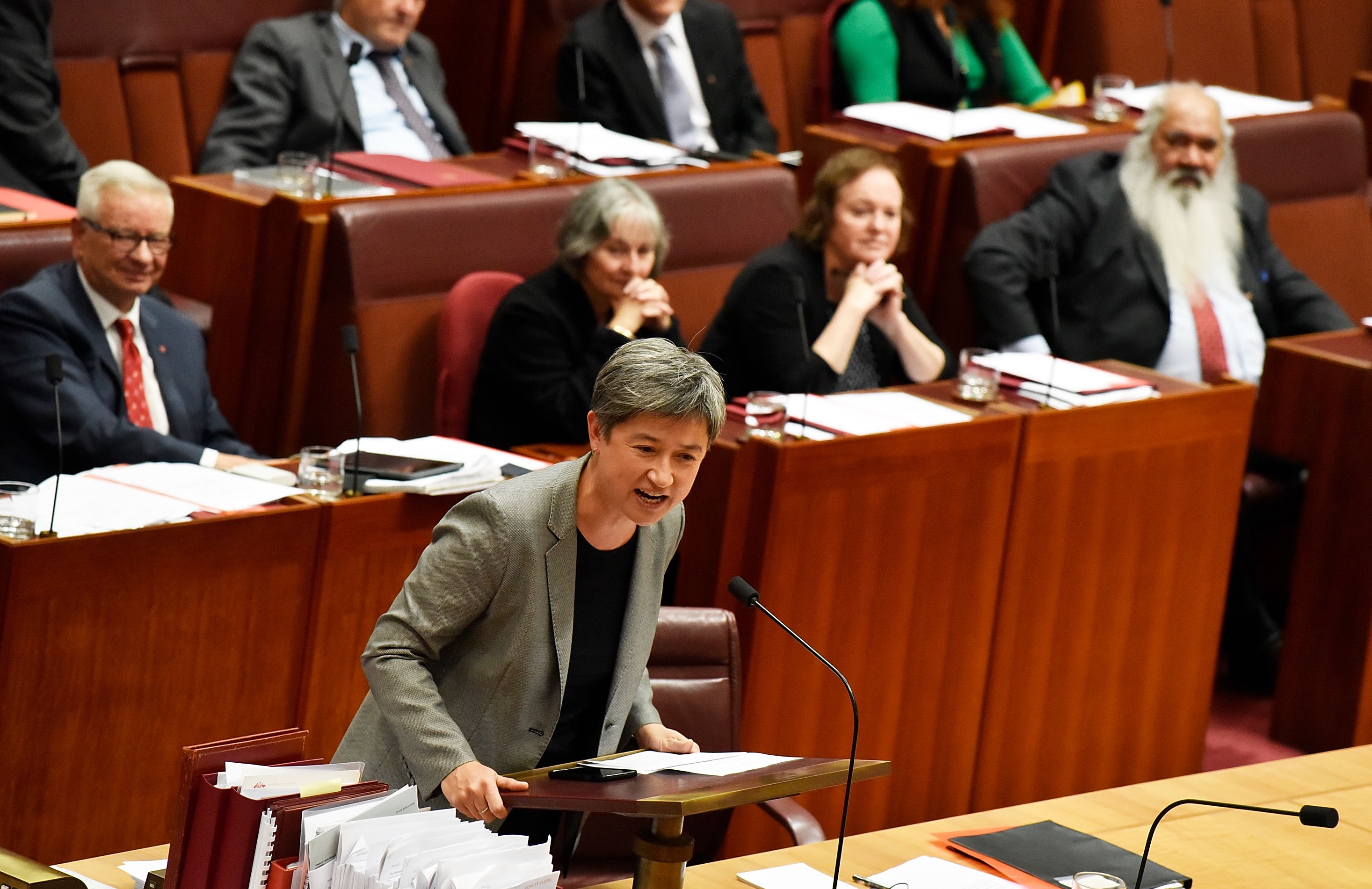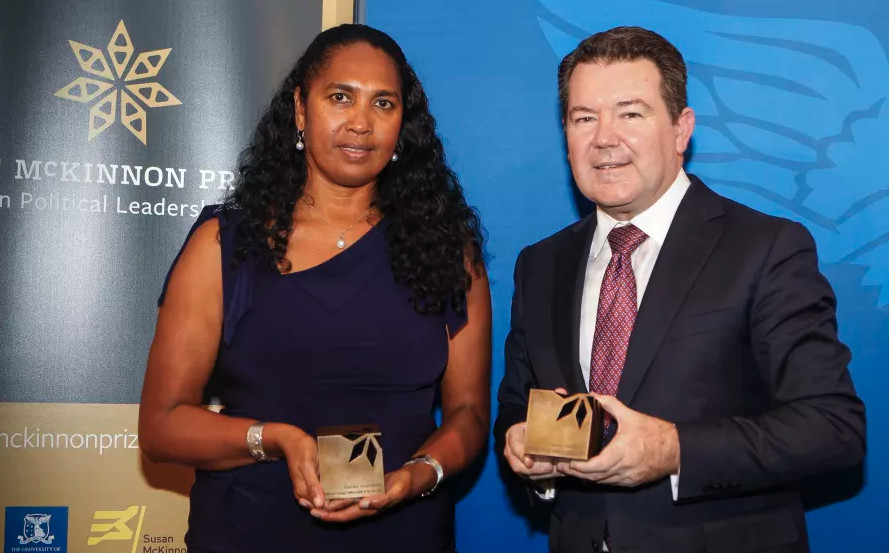
Penny Wong: On change

The McKinnon Prize in Political Leadership aims to recognise political leaders who’ve driven positive change. Labor senator Penny Wong says modern politics is changing
Published 3 November 2018
When the young union legal officer Penny Wong, active in Labor politics since her university days, considered a run for federal parliament, she concluded that her options were severely limited not because of factional numbers or the ALP’s unpopularity, but because of who she was.

She knew what stood between her and any lower house seat.
“I didn’t want to run for the House because I’m Asian and gay. I was not prepared to risk a seat, given whatever proportion of people might change their votes because of that, and also because of what it might do to myself and the people I loved,” she says almost 20 years on.
Wong had set her cap on a parliamentary career in the lead-up to the 2001 federal election, notable for the storming of the Tampa and the September 11 attacks in the weeks prior to polling day.
She secured a place on Labor’s Senate ticket in South Australia, satisfied that she’d been correct to have opted for a political life in the upper house.

But she found her first election disconcerting, alarmed at “the tone of that campaign, the way that border issues, asylum seeker issues, were meshed with xenophobia. It was a real turning point in our politics, with the weaponisation of race.”
And since then, the old model of politics has further transformed, with the shortening of the news cycle, the fragmentation of the media, and opinion polls consistently showing a lessening of trust in democratic institutions.
Now, as leader of the opposition in the Senate and just a few weeks before her 50th birthday, it’s Wong’s job to navigate that changing and often difficult environment.
And part of her remit, along with her parliamentary colleagues, is to rebuild faith in democracy and the political process. Asked how that is going, she responds that the results are mixed.
“At times I’ve been frustrated because some commentators and external parties point the finger and suggest that it’s all about us – the politicians of the generation. I’d make a couple of points about that. One is that no-one has yet worked out how to handle this environment optimally. We’re probably doing better than we did five years ago,” she says.
“The second point is that if we get into a world where we only blame politicians – and, of course, we should always be held to account – I think it fails to recognise that there’s a collective role in there.

“Yes, politicians have at times been found wanting. But politicians respond to incentives and if they have been rewarded for being destructive and aggressive, not pushed on the three-word slogan, not pushed on the ‘how’, and are just reported in a way that gives them more weight than they deserve, then that’s the politician you’re going to get.”
Wong’s view is that while politicians have an obligation to do the heavy lifting on restoring faith in politics, there’s a shared responsibility across society to take part in the renovation work, something she is sure the community is up for.
On a number of issues, such as climate change and marriage equality, she believes the public contributes to “collective leadership” by being well ahead of the nation’s politicians. The best recent example was last year’s marriage equality survey.

“We should never have had to have that postal vote – it was always about the Liberals demanding there not be a free vote (in the parliament) - but once we were there, the way that individual Australians showed leadership was incredibly heartwarming,” she says.
“I remember the night the results were announced, I went to Braddon in Canberra and stood on a table and gave a speech, and one of the things I said was that it was a day of hope, a day that this country showed itself to be the country we hope it is. For me, it wasn’t about any politician, it was about what I had seen not just in the organised campaigns but in the community.”
As a senator, Wong has built a reputation among opponents and Labor colleagues as someone who doesn’t take a backward step. Her public demeanour is not built around humour or memorable lines or personal revelation. Fellow Labor MPs say she is like that in party meetings too.
All the same, she says she has tried to avoid the gladiatorial style of many politicians.

“I think I know how to have a political fight but I didn’t get into parliament for the fight. I don’t leave the family and spend time away from my children because I want to have a fight.”
It’s certainly the case that since the last election she’s steered away from trying to personally attack her direct opponents in her roles as Labor’s Senate leader and foreign affairs spokeswoman.
In fact, she has a good relationship with the government’s leader in the Senate, Matthias Cormann.

Politics & Society
Julia Gillard: On women
“I get on very well with Matthias Cormann. He and I are very different in terms of our political views but I think he’s trustworthy in terms of his dealings with me,” she says.
In May, they had a fierce public spat when Cormann, annoyed at Wong’s questioning about the government’s relationship with One Nation during an estimates committee hearing, told her: “I know that you always like channelling Pauline Hanson.”
Wong protested loudly at what she regarded as a slur, and it was only later that Cormann apologised on Twitter and Wong accepted the apology.
Wong sees the aftermath of the exchange as a positive.
“He and I got into a pretty personally aggressive space and I think when you get to that point you have to say ‘okay, let’s bring it back now’. That’s an important signal, because you can’t keep going.
“I think we have a role in trying to make a contribution around norms. Normative signals matter. If he and I can manage conflicts and debates between us in ways which are within the bounds of robust debate, that is, I think, an important normative signal.”

Similarly, when Wong took on the foreign affairs portfolio in 2016, she decided that she wouldn’t engage in personal attacks on Julie Bishop, who until the government’s latest leadership upheaval in August, was the minister.
“Essentially, I said to her ‘I’ll deal with you fairly’. For example, I encouraged her to reinstate the bipartisan trip to the Pacific, which she had stopped. I said to her, ‘I won’t use those trips to make a partisan attack’. I think she saw the benefit of that and she was very gracious and generous on those trips.”
Wong sees leadership, even in politics, as something that is shared.

Politics & Society
John Howard: On gun control
“Leadership is praxis, isn’t it? It is influenced by position but it is not wholly explained by position.”
This is in keeping with the aspirations of the McKinnon Prize in Political Leadership, established last year to recognise politicians at all levels of government who generate national discussion about our expectations of political leadership and inspire others to pursue courageous and visionary leadership.
Wong holds the inaugural winner of the McKinnon Prize, Liberal senator Dean Smith, in high regard for what she sees as his courage in sponsoring the Bill that legislated for same-sex marriage.
She sees the prize as an important and timely stimulant to encourage public reflection on the importance of leadership.
“At a time when many openly question the value of democracy, political leadership matters. By celebrating the courage and vision of leaders who defend our values and institutions, the McKinnon prize helps strengthen our democracy,” she says.
Asked what she sees as the negatives that flow from the often rancorous nature of our politics, she nominates that it’s harder to “get stuff done”, and the corrosion of a sense of ownership and collective purpose that creates a more fertile ground for extremist views.

In this, she sees a potentially greater threat to the country. So far, the more extreme nationalist and populist tendencies have been limited to the minor parties and the independents rather than the major parties.
Labor has diagnosed economic inequality as its best way to challenge extremist views, which happens to be a natural fit for the party, given its historic roots in the union movement.
But that’s not necessarily a guaranteed defence, in Wong’s view. “There hasn’t been a charismatic populist leader to take on the major parties yet. And if that happened, that could be challenging.”

Politics & Society
Is our democracy broken?
The best way to outflank more extremist views and any charismatic leader who might come through, in Wong’s view, is to tackle their arguments head-on.
“There is never any benefit in placating. The Longman byelection, which Labor won, demonstrated to me how important it was to have the courage of your convictions and to reframe the argument and to be prepared to take on your opponent.
“We took on One Nation. And what we did was we fought on the economic front and on social issues - essentially on a Labor front. What did Malcolm Turnbull do? He didn’t take them on.
“And all that will happen if the Liberal Party doesn’t take on the hard right is that they will cannibalise them.”
Nominations for this year’s McKinnon Prize in Political Leadership are open until the end of November.
This article was co-published with the Herald Sun.
Banner image: Fairfax Media